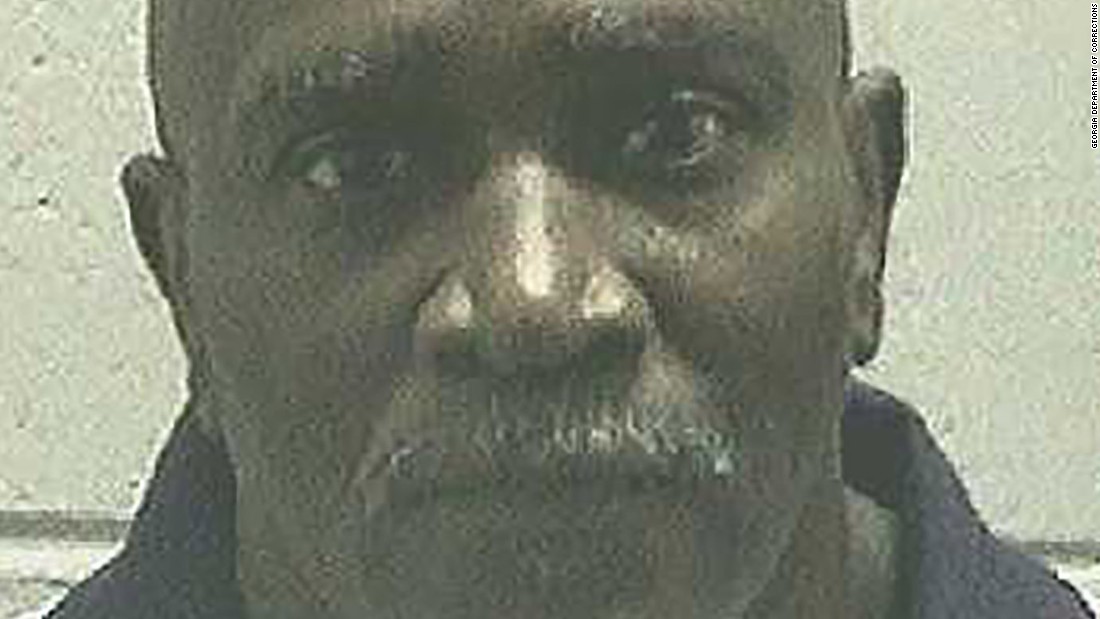
Keith Tharpe died Friday night, likely from complications of cancer, the organization said. He was 61.
In appeals following his sentencing nearly 30 years ago, Tharpe's lawyers pointed to an interview with juror Barney Gattie, who used a racial slur in reference to African-Americans and also questioned whether "black people even have souls."
The US Supreme Court stayed Tharpe's scheduled execution on September 26, 2017. The court said the death row inmate's legal team produced a "remarkable" affidavit from a juror that presented a "strong factual basis" for Tharpe's argument.
The court sent the case back to the 11th US Circuit Court of Appeals, which again ruled against him. The country's highest court refused to take up the case in 2019.
"The courts' failure to confront the racism tainting Mr. Tharpe's death sentence remains a stain on the judicial system and calls for increased efforts to eradicate the poison of racism in our criminal courts," Georgia Resource Center attorney Marcia Widder said in a statement Saturday. Widder was one of Tharpe's attorneys at the nonprofit organization, which offers free legal representation to prisoners on death row.
The center said Tharpe had spent the last years of his life "strengthening his bonds with family and friends, and deepening his Christian faith."
CNN has reached out to the Georgia Department of Corrections to confirm the death.
Juror 'harbored very atrocious, racist views,' attorney said
Tharpe was convicted in 1991 for the murder of his sister-in-law, Jaquelin Freeman. During the trial, prosecutors alleged he stopped Freeman and his estranged wife on their way to work, shot Freeman, threw her into a ditch and shot her again, killing her.
Then, prosecutors said he raped his wife and took her to withdraw money from a credit union where she was able to call police for help, court documents showed.
Tharpe was sentenced to death three months after his conviction. In his appeals, he did not deny killing Freeman but sought a stay of execution based in part on racist comments from a juror who voted to put him to death.
Seven years after the sentencing, the Georgia Resource Center conducted interviews with each juror as part of a routine investigation to prepare for a petition.
In his interview, Gattie showed that he "harbored very atrocious, racist views about black people," Georgia Resource Center attorney Brian Kammer said.
According to his affidavit, Gattie said, "In my experience I have observed that there are two types of black people: 1. Black folks and 2. "N****rs."
Gattie went on to say in his affidavit, "I felt Tharpe, who wasn't in the 'good' black folks category in my book, should get the electric chair for what he did." As of 2001, Georgia carries out its executions by lethal injection.
"After studying the Bible, I have wondered if black people even have souls," Gattie said.
Gattie later said in a deposition that he did not intend to use the n-word as a racial slur, according to court documents.
Following that interview, the state -- doing "damage control," Kammer said -- had Gattie sign a second affidavit that undercut his statements to Tharpe's attorneys, claiming he was drunk at the time he made them.
Gattie also had said during jury selection he had no connection to Freeman's family. But in the same affidavit he made his remarks, he admitted to knowing the Freemans.
No comments:
Post a Comment